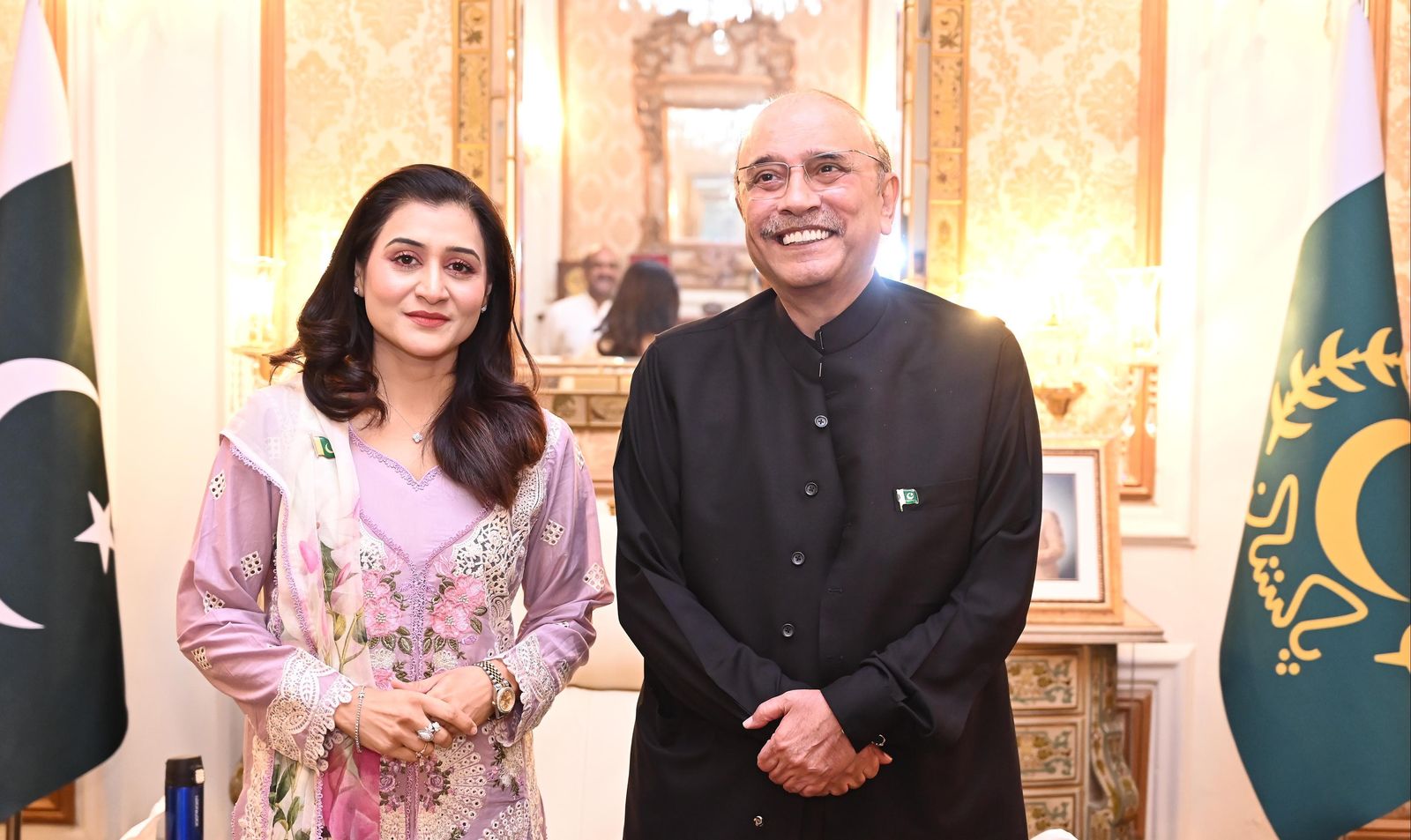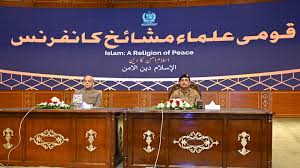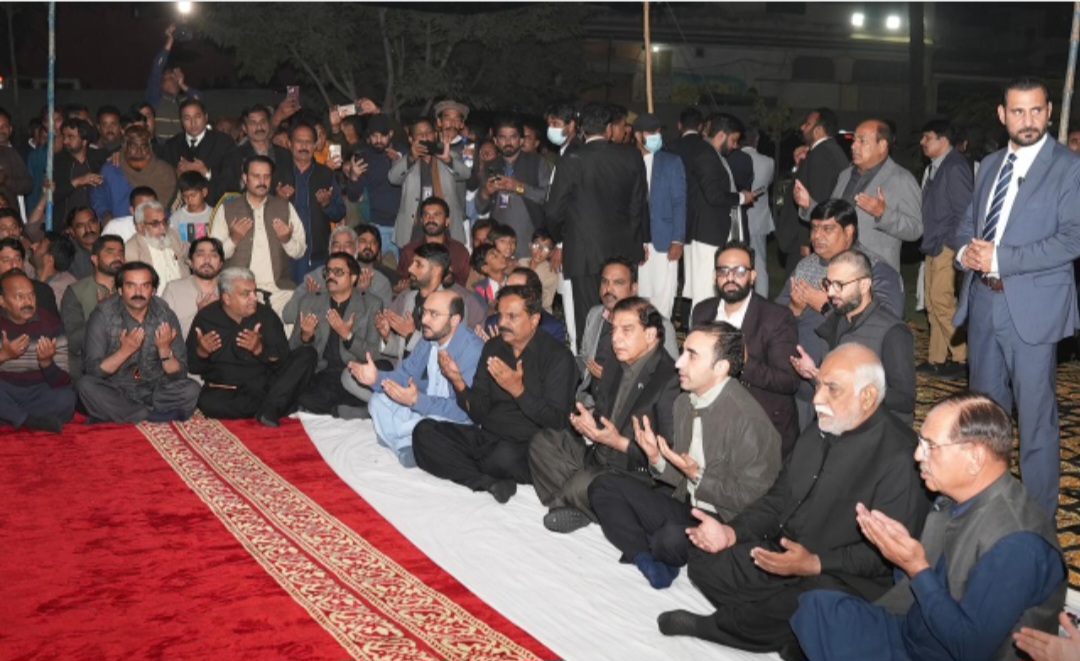Parliament — Guardian of Democracy
By Sania Kamran — Former Member, Punjab Assembly | Leader, Pakistan Peoples Party

As we mark today's International Day of Parliamentarism, I am reflecting back on the deep and meaningful journey Pakistan has been on in search of authentic democratic governance. For its part, during my years as a member of the Punjab Assembly, I was able to experience the transformative power of parliamentary democracy, and feel compelled to share why Parliament is our most cherished institution--and our obligation to protect it with our lives.
Through my experiences as a legislator, I have come to firmly believe that parliaments are much more than legislative chambers engaged in debate and procedural motions, they are true houses of hope, fairness and accountability. Each time I had to walk into that assembly hall, I was going not just as myself, but carrying with me the hopes and aspirations from so many citizens who cherished democratic representation.
The statements from our party leadership on this day provide powerful reminders of why the Pakistan Peoples Party has always led the charge for parliamentary democracy in this country.
The sentiments expressed by President Asif Ali Zardari resonate strongly with me: "Parliament is the supreme representative of the will of the people and the custodian of constitutional values. It not only defines policy and holds the executive accountable, but also protects the rights and freedoms of all citizens."
These are not just political slogans. I have been privileged to work alongside democratic institutions, and I have seen how effective legislation and parliamentary scrutiny can actually change lives. When Parliament works as Parliament is meant to work—as the supreme will of the people—it is a force for justice, equity, and advancement.
Chairman Bilawal Bhutto Zardari's passionate defence of Parliament goes to the core of why our fight for democracy matters. He stated: "Parliament is not simply a physical structure made from bricks and stone. It is the will of the people, the seat of their ambitions, and the custodian of their freedoms." He expressed precisely why we contest for Parliament.
As someone committed to upholding the values that Shaheed Zulfikar Ali Bhutto and Shaheed Mohtarma Benazir Bhutto fought and died for, I am inspired by Chairman Bilawal's point that "every single seat represents the sacrifices of martyrs of democracy." In taking my oath as a member of the Punjab Assembly, I thought about the sacrifices of our democracy's heroes; I was reminded that my existence there was made possible by their ultimate sacrifices.
In my experience, the greatest threat to any democracy comes not from external forces, but from those within who seek to bypass, undermine, or marginalize parliamentary authority. Chairman Bilawal's warning that "we must never allow anyone to weaken this institution" is not just political rhetoric—it is a call to arms for every democrat in Pakistan.
I have seen what happens when Parliament is sidelined, when decisions are made in corridors of power rather than in the people's house. The result is always the same: governance that serves the powerful instead of the people, policies crafted in isolation rather than through democratic consultation, and a gradual erosion of the very foundations upon which our republic stands.
As a former legislator, I believe firmly that Parliament must remain the nucleus of all decision-making. Laws should not be made in haste or in the shadows, but with wisdom, inclusion, and compassion—qualities that can only emerge through genuine parliamentary debate and democratic process.
Chairman Bilawal's vision of Parliament as "the place where dreams of equality, justice, and dignity for every Pakistani can be shaped into law" reflects the Pakistan Peoples Party's enduring commitment to democratic governance. This is not just political theory—it is a practical roadmap for building the Pakistan that our founders envisioned.
The Chairman's final words—"Parliament is not just a chamber of debate—it is the beating heart of our republic. To protect it is our sacred duty"—capture the essence of what it means to be a democrat in Pakistan today.
As we observe this International Day of Parliamentarism, I ask all of my fellow Pakistanis—whether you are serving as an elected official, you are working as part of civil society, or you are simply exercising your right to vote—to reaffirm your own commitment to the aspects of transparency, accountability, and rule of law that allow parliamentary democracy to exist.
The way to good governance in Pakistan will flow from a strong, empowered and respected Parliament, which must continue to be defined by the people of Pakistan, respect the rights of people of Pakistan, and protect the future of the people of Pakistan. That is not simply a political demand, but a moral responsibility that articulates our identity as a democracy and a nation.
Let us not lose sight of the fact that Parliament is the only place where the voice of the people is heard, where justice is articulated, and where the future of Pakistan is written not just by a select few, but by the majority. We are in fact duty bound to protect that institution, which I promise to do until my last breath.
Sania Kamran is a former Member of the Punjab Assembly and a leader of the Pakistan Peoples Party. She has been a lifelong advocate for democratic values and parliamentary supremacy.



No comments yet.